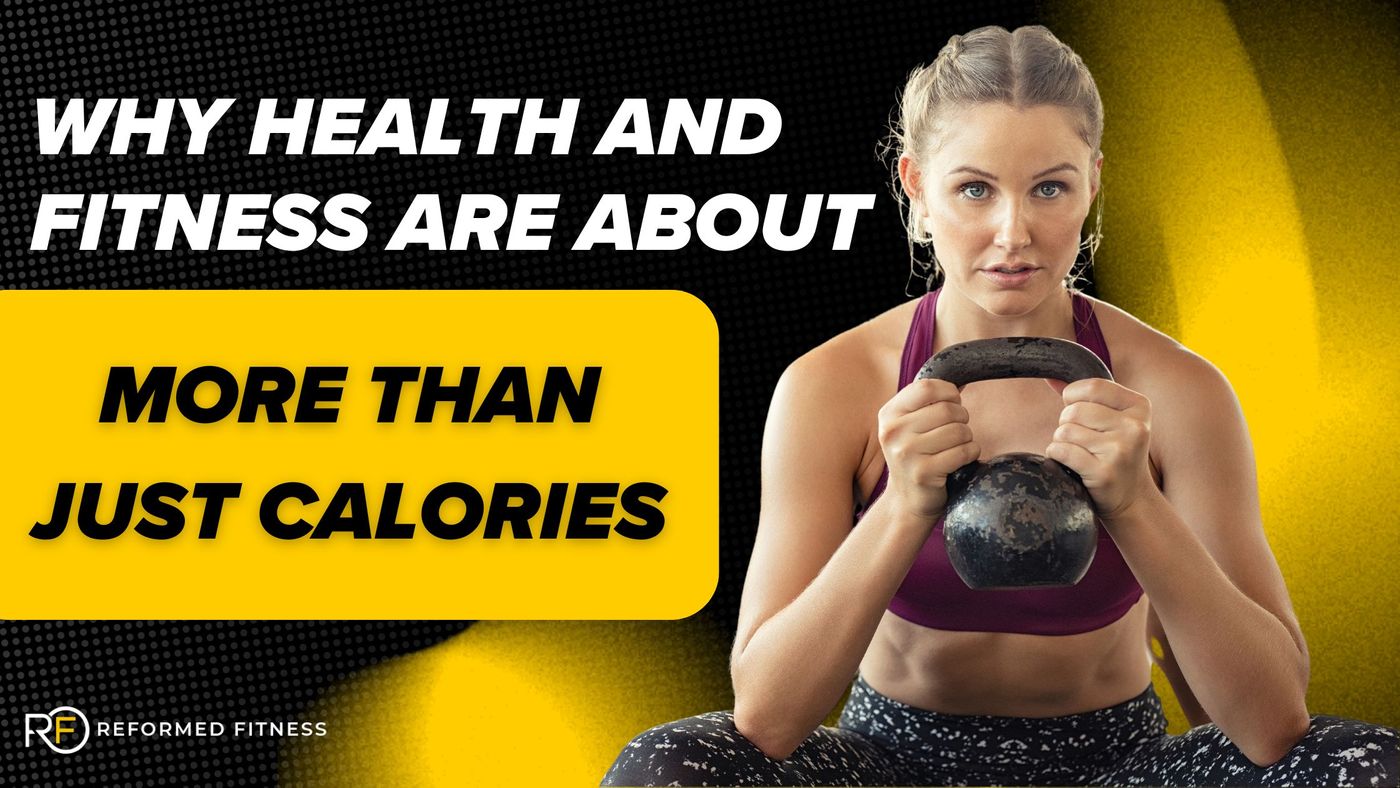When most people think about working out, they focus on one thing: calories. How many calories did I burn on the treadmill? How many calories are in this meal? While it's natural to think of fitness in terms of numbers, true health and wellness go far beyond that.
As Jake, one of our Reformed Fitness coaches, explains, fitness is about so much more than calorie-counting. It's about creating a life that's full, balanced, and sustainable. In this post, we'll dive into the mindset shift that can make fitness a lifelong journey instead of a short-lived chore.
Cardio for Enjoyment, Not Just Calories
For many people, cardio can feel like a necessary evil—something they "have" to do to burn calories or lose weight. But Jake's perspective is refreshing: he does cardio not to burn calories, but to maintain the ability to do what he loves. Whether it's hiking, playing tennis, or just keeping up with younger friends, cardio enables him to enjoy activities that keep him engaged and happy.
Research supports the importance of cardiovascular exercise for overall health benefits beyond calorie-burning, including improved endurance, heart health, and stress reduction [1]. Imagine if your fitness routine could support the activities you love rather than just being a calorie-burning task. When you see cardio as a way to fuel your passions, it stops feeling like a burden and starts being something you look forward to.
Actionable Tip: Identify 1-2 physical activities you're passionate about (e.g. hiking, golf, swimming) and incorporate 2-3 high-intensity cardio sessions per week to build the stamina for those pursuits.
Strength Training for Resilience, Not Just Aesthetics
Another common misconception is that strength training is all about aesthetics—building muscle, getting "toned," or looking a certain way. But strength training is a powerhouse when it comes to preventing injuries, combating chronic disease, and managing stress [2].
Jake strength trains to maintain resilience, both physically and mentally. Studies show that regular strength training can help reduce the risk of osteoporosis, improve bone density, and protect joints from injury [3]. By building strength, you're not just preparing for the gym; you're equipping yourself to handle the demands of everyday life.
Actionable Tip: Commit to two 30-minute strength training workouts per week, focusing on compound exercises that work multiple muscle groups efficiently. This time-saving approach can deliver incredible results.
Eating Well for Balance, Not Just a Body Goal
The same principle applies to diet. Many people approach eating with one goal in mind: losing weight or achieving a specific body type. But Jake's approach is about balance. He eats well-rounded meals not to get shredded, but to nourish his body and enjoy treats with friends and family.
Balanced eating promotes a healthy relationship with food, enabling you to indulge in moderation while fueling your body. Studies have shown that this balanced approach to nutrition improves overall well-being, helping to regulate mood, energy, and even longevity [4]. When you stop seeing food as something to be restricted or controlled, it can become a source of joy and connection.
Actionable Tip: Work with a nutrition coach to develop a flexible eating plan that allows you to indulge in moderation while providing the nutrients you need to perform at your best. Avoid overly restrictive diets that are unsustainable.
The True Purpose of Health and Fitness: Being Your Best Self
At its core, fitness isn't about numbers or aesthetic goals; it's about becoming the best version of yourself. Jake's approach to health and fitness is inspiring because it centers on quality of life. Instead of obsessing over calories in versus calories out, he focuses on the ways that exercise and nutrition can enhance his life.
Whether it's keeping up with friends on a hike, lifting his kids without strain, or enjoying a family meal without guilt, fitness should help you live fully. When you start to view health this way, the journey becomes sustainable, enjoyable, and truly rewarding [5].
How Reformed Fitness Can Support Your Health Goals
At Reformed Fitness, we believe in helping you build a routine that fits seamlessly into your life, supports your passions, and leaves room for the things you enjoy. With just two 30-minute workouts a week, we focus on making fitness both effective and sustainable, so you can be the healthiest version of yourself without feeling overwhelmed.
If you're ready to make a change and start seeing fitness as a way to support your life, not control it, we're here to help. Schedule your FREE Discovery Call today, and let's create a personalized plan to help you build a life full of energy, strength, and joy.
Stay Fit,
Xavier Robinson Founder, Reformed Fitness
References:
American Heart Association. (2020). The Benefits of Cardiovascular Exercise for Your Heart and Health.
Mayo Clinic Staff. (2019). Strength Training: The Key to Improving Overall Health and Preventing Injuries.
National Institutes of Health. (2021). Strength Training and Bone Health: How Weight-Bearing Exercise Protects Joints and Prevents Osteoporosis.
Harvard School of Public Health. (2022). Balanced Eating: A Sustainable Approach to Nourishment and Well-being.
Journal of Health Psychology. (2020). Quality of Life and Health: How Fitness and Balanced Eating Impact Overall Well-being.

